Course Description:
Starting from the premise that people or humans are cultural beings, in this course we will ask, what was and is cultural anthropology and why does it matter? In other words, why study cultural ways, our own and/or that of others? From an anthropological perspective the answer is simple—because everything we do, think, eat, like, dislike, believe, etc. is a cultural product. By understanding how culture operates as a system of beliefs, customs and practices—for ourselves and for others—we are better equipped to broaden our collective understandings of each other.
We are equipped to develop an understanding of cultural diversity, co-existence and the shared, collective experience of being human.
This course takes as a beginning and foundational assumption that anthropologists do not provide “final answers” to questions posed. Our understandings of e.g. culture, kinship, gender, subsistence, religion and social systems change as the kinds of questions we ask and the methods we use change and we pay attention to both, historical and contemporary debates, theories, paradigms and concepts.
Educational Objectives/Outcomes
The goal of this course is to encourage constructive dialogue, cross-cultural sensitivity and awareness, and engaged global citizenship through an introduction to anthropological inquiry, thought and method.
By the end of this course students will be able to:
- Articulate what is meant by the concept of culture and how culture shapes our perceptions and experiences of the world.
- Discern cultural features and functions from a range of cross-cultural ethnographic contexts.
- Demonstrate why cultural relativism as a core principle of anthropological inquiry is critical to recognizing all ways of knowing equally and on their own terms.
- Articulate how their own cultural and individual location shapes their perceptions of the world, biases, behaviours, and assumptions and apply anthropological principles to their own experience.
- Analyze and reflect on how structures and systems of social inequality are products of culturally constructed notions of race, class, gender, sexuality, power, privilege, and prestige and are deployed through projects of colonialism, globalization, and cultural imperialism.
- Identify the methods of ethnographic research and the ethical dimensions of anthropological fieldwork and intercultural practices and demonstrate how to engage with these complexities through grounded examples.
- Critically examine the role of anthropological knowledge and ethnographic research in colonial and postcolonial contexts in the production of the concept of “an Indigenous/Ethic/Cultural Other.”
- Demonstrate the potentials of cross-cultural comparison as a means of broadening our understanding of each other, and ourselves and as an important part of a commitment to social justice, ethics, and inclusion.
- Teacher: McCutcheonRichard
